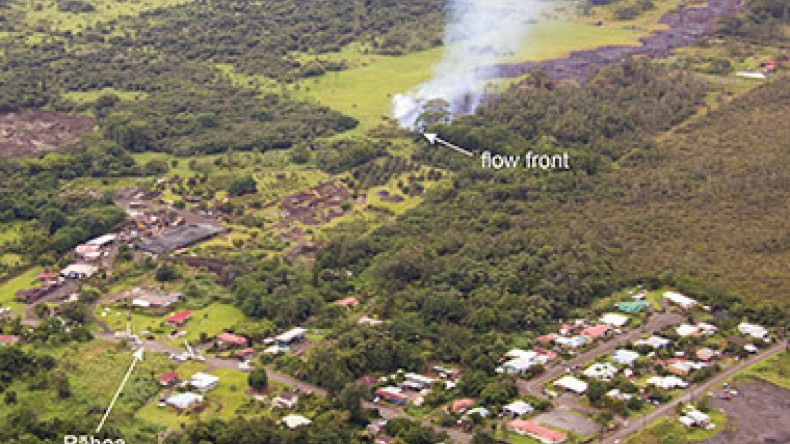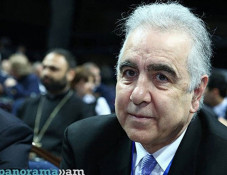
Hawaii volcano: Lava flow stalls, though official wary of 'breakouts'
The lava flow has slowed, if not stalled altogether. Still, authorities warned Thursday that the threat to eastern Hawaii residents -- much like the oozing, simmering, destructive lava itself -- hasn't gone away, CNN reported.
Darryl Oliveira, the director of the Hawaii County Civil Defense, told reporters that "there's been no movement forward" at the front of the destructive lava stream between Wednesday and Thursday.
"But there's lots of activity behind it," Oliveira said. "... There are breakouts along the margins that we'll have to watch and be wary of."
The lava began moving toward the area of Pahoa, on Hawaii's Big Island, in June, when a volcanic crater vented and released the river of liquid rock.
It's been creeping along ever since, with authorities warning at one point the main road in Pahoa could be overcome by Friday morning.
The lack of recent movement changes that equation, though the main flow -- which is about 20 yards wide at its tip, expanding to 100 yards farther back -- is still within about 480 feet of that street.
There's no guarantee of what happens next, including whether the stream resumes its forward movement or whether any of its offshoots encroach on people or properties. A USGS geologist has said the lava flow could continue for 30 years.
As Matthew Patrick, a geologist with the Hawaii Volcano Observatory, explained Thursday: "The flow is still active, and there is still scattered activity in the flow.
"So it's just a matter of where that activity is at any given moment."
Newsfeed
Videos






























